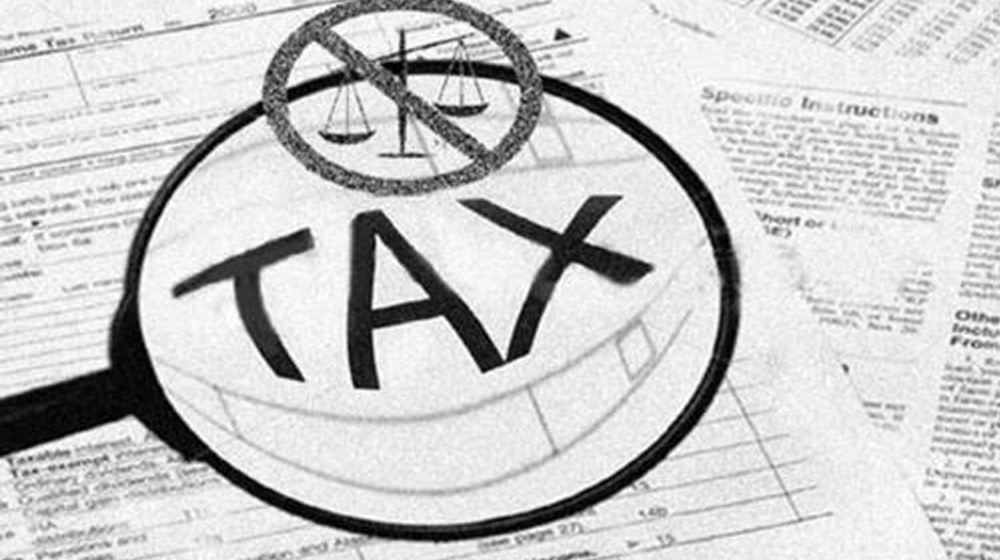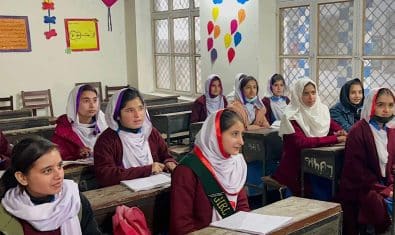The Federal Board of Revenue (FBR) has shared the financial details of people, whose data was exchanged by the Organisation for Economic Cooperation and Development (OECD), with the National Assembly Standing Committee on Finance.
The meeting was informed by the tax authorities that Rs. 1 billion in taxes were recovered from money laundering of $5.5 billion because of the amnesty schemes offered in 2018 and 2019. The meeting was further told that tax authorities could have imposed a 35% tax and a 35% penalty on the laundered amount of $5.5 billion.
Asad Umar was surprised that the government was unable to recover full tax on illegally parked money in foreign banks despite amnesty schemes offered by the successive governments.
Asad criticized the idea of introducing amnesty schemes to enable citizens to whiten undisclosed assets, saying they show the “weakness of state” against tax evaders. Ayesha Ghous Bakhsh also questioned the use of the amnesty schemes despite a lackluster response.
The FBR’s Director-General International Taxes Mohammad Ashfaque informed the NA panel that they received data of about 57,550 people under the OECD cooperation mechanism.
The tax authorities told the committee that OECD shared the data of 325 undeclared accounts which had over $1 million each as on October 31, 2019.
Of the 325 cases, Rs. 62.335 billion was whitened in 135 cases through the tax amnesty scheme in 2018 and Rs. 31.7 billion was whitened in 56 cases under the 2019 amnesty scheme.
The total tax paid to the government was Rs. 2.819 billion in 2018 and Rs. 1.694 billion in 2019. The Finance committee was informed that in total, 115 cases were assessed with tax imposition of Rs. 4.063 billion and Rs. 1.002 billion was recovered against the imposed tax.
10 cases are under proceedings, the committee was informed.
Overall, FBR collected just Rs. 5.5 billion with the two amnesty schemes.
The committee was further informed that Common Reporting Standard (CRS) data is expected from 19 more jurisdictions, apart from data from 45 countries which has already been received. Pakistan has also transmitted data to 55 jurisdictions and the OECD team is also helping Pakistan and other jurisdictions in handling different issues related to this data, he added. The committee expressed dissatisfaction with the performance of the FBR with regards to recovery under OECD.
UAE Not Giving Access
It has been reported that the government is facing difficulty in getting access to any actionable bank account information of Pakistani tax residents allegedly hiding behind Iqama (work permit). This was disclosed by Chairman Federal Board of Revenue (FBR) Shabbar Zaidi during a meeting of the Finance Committee of the National Assembly.
“The UAE is a serious problem and is not giving data to Pakistan,” he said and added that the UAE authorities interpret Iqama holders as residents and do not provide access to their data.
“Our interpretation is that Iqama is not residency but a work permit,” he added.
Zaidi further said,
We wrote a letter to the Organization for Economic Cooperation and Development (OECD) whose response was that it does not agree with the UAE interpretation of Iqama and would pursue the matter.
Pakistan Faces Greater FATF Challenges Than Others
Minister for Economic Affairs Hammad Azhar said that Pakistan faces greater FATF challenges than other countries because of its risk profile. He further stated that the completion of one action plan does not mean that the country will be out of the greylist.
He apprised that Pakistan’s foremost priority is to complete the 27-point action plan of International Cooperation Review Group (ICRG). Pakistan was compliant, partially compliant and largely compliant on 22 action points and was non-complaint on five action points of ICGR.
He said that Pakistan will submit an initial report in December followed by the second report on January 7, 2020 which would be put up before the FATF plenary at the end of January to be taken up by mid-February 2020.
“We want to complete the ICRG action plan by 2020,” he added.
He said that substantial progress has been made and terror financing activities are now being identified but the conviction remains a challenge.

























